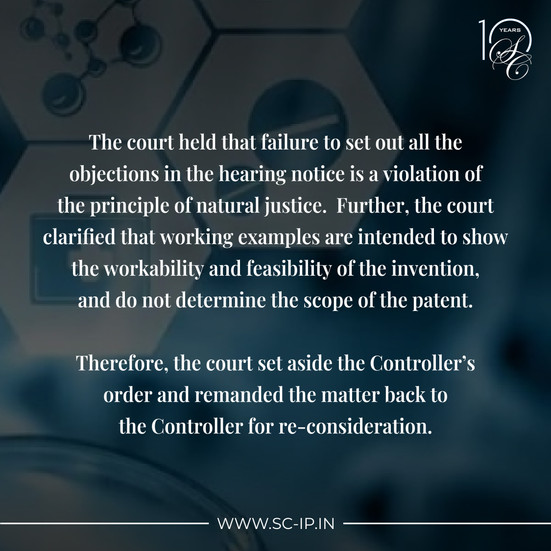The Delhi High Court, recently, ruled in favour of Bayer Pharm Aktiengesellschaft (“Appellant”) setting aside a refusal order issued by the Controller General of Patents and Designs (“Controller”) for the Appellant’s patent Application 5818/DELNP/2006. The patent application relates to a contraceptive formulation and had been rejected on the grounds that it is a mere admixture of known compositions and is a method of treatment.
The Appellant argued that it was not provided a fair opportunity to address the objections as it was not mentioned in the hearing notice issued by the Controller. They also contended that the Controller has failed to differentiate between a composition and a method of treatment which is evident from the fact that the claims of the patent application are for a product (i.e. a composition) and not a method of treatment.
The Controller argued that the objections raised were valid, citing working examples provided in the Appellant’s patent application which demonstrated the claimed invention as a method of treatment. The Controller stated that the independent claim relates to a dosing regimen and indicates a method of treatment rather than a mere composition. The court clarified that working examples are intended to show the workability and feasibility of the invention, and do not determine the scope of a patent. Such examples provide support and understanding for the claimed invention, showing that it is not just a theoretical concept, but has practical applicability. The court further noted that the scope of a patent is determined by the claims, which must be interpreted in light of the description and any examples provided.
The court held that failure to set out all the objections in the hearing notice is a violation of the principle of natural justice, and also observed that the refusal order issued by the Controller lacked any substantive basis. The court further opined that the independent claim does not mention any specific disease or method of treatment, and it pertains exclusively to a product rather than a process, thereby negating the ground of non-patentability owing to it being a method of treatment. In light of these findings, the court disposed of the appeal, set aside the order of the Controllor, and remanded the application back for further consideration. Click here to access the judgement copy









Comments